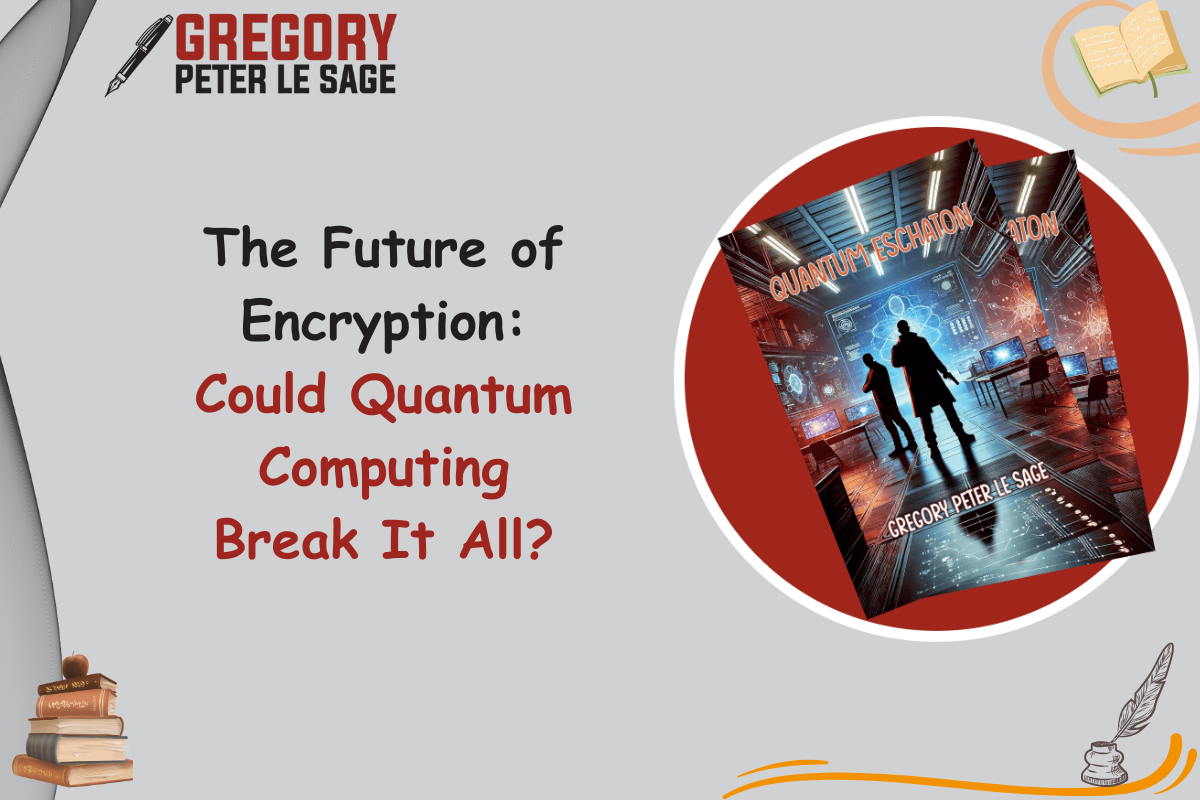With cybersecurity being the rule and the foundation of contemporary society, ranging from privacy to finance, encryption represents the foundational for it all. But where do we draw the line in case the advancement in technology surpasses those extremely secure modes of encrypting data? Gregory Peter Le Sage’s Quantum Eschaton delves into this question with chilling clarity, presenting a future where quantum computing reshapes the very foundation of encryption.
The Rise of Quantum Computing
Quantum Eschaton is built around the idea of change that quantum computing may bring into our world. Unlike a traditional computer, which uses bits (0s and 1s) to process information, a quantum computer uses qubits, which exist in all possible states during processing due to a principle known as superposition. This enables quantum computers to perform certain calculations much faster than classical computers. Computations that take a quantum computer seconds to solve might take a classical computer thousands or even millions of years to complete.
In the novel, James Cathcart’s groundbreaking work in quantum computing leads to a monumental achievement: the breaking of RSA encryption. That is not simply science fiction—it is a possibility that cybersecurity analysts have predicted since publication of Shor’s algorithm in 1994.
RSA Encryption: The Gold Standard
RSA encryption named after the inventors Rivest, Shamir, and Adleman is one of the most used encryption methods in the world. It is based on the mathematical problem of the factoring of large prime numbers. While traditional computers can take millions of years to crack a 2048-bit RSA key, quantum computers with enough qubits could theoretically achieve the same feat in a matter of seconds.
In Quantum Eschaton, this hypothetical future becomes a reality. Millions of stable qubits at the disposal of James’s quantum computer make time-bound RSA encryption irrelevant in today’s world. This breakthrough highlights a critical concern: many of the systems that we using will not be secure in the quantum age.
The Implications of Cracking Encryption
The novel vividly illustrates the consequences of breaking encryption. Financial systems, government communications, and personal data all become vulnerable. In the hands of individuals or organizations with malicious intent, quantum computing could dismantle global security structures, leaving no system safe from prying eyes.
The ethical considerations posed to James form the core of this conflict. He had to decide whether to delegate this power to Alpheus, the corporate entity funding his research, or to take control of that power himself?
Preparing for the Quantum Threat
Quantum Eschaton can be viewed as a thriller telling about the advent of the quantum computing revolution. The book at the same time is a warning. Quantum computing promises immense scientific advancement, but the peril of defeated encryption in the world could mean disaster. Quantum resistant cryptography will emerge, but implementation will not be instant.
Ethical Considerations in the Quantum Era
Aside from the just discussed technical issues, Quantum Eschaton poses profound ethical concerns. What happens when a few individuals or entities control technology capable of breaking encryption? How can we create quantum computing in a way that benefits society instead of destroying society?
This is a good example of why there should be accountability for the prospective scientific advances as represented by James’s story. And these questions become much more pressing as quantum computing is on the verge of becoming a reality.
Conclusion: A Future Worth Securing
Quantum Eschaton offers a compelling narrative about future science, urging readers to consider the profound impact quantum computing could have on encryption and security. While the technology holds immense promise, it also carries significant risks that require careful navigation. As we move toward the quantum era, the novel serves as a reminder that technological progress is only as secure as the ethical frameworks and safeguards we build around it. The future of encryption—and indeed, the future of security—depends on our ability to anticipate and address the challenges posed by quantum computing before they become insurmountable.

